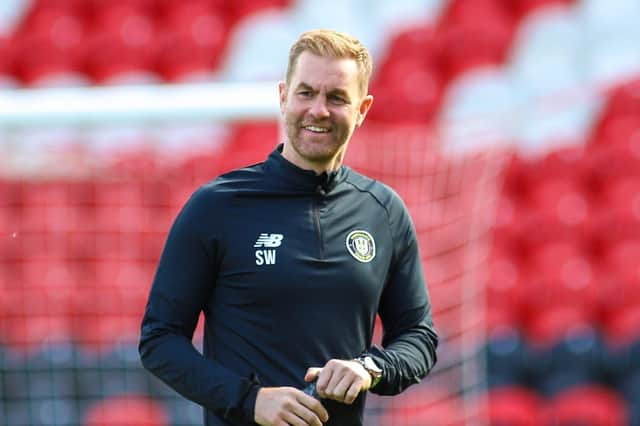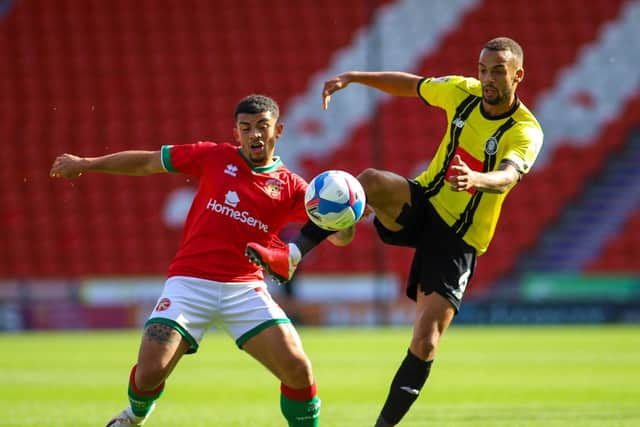Harrogate Town manager Simon Weaver will be 'proud' to return home to take on Doncaster Rovers


Born locally, then raised and educated in Sprotbrough, the 44-year-old also made his senior debut as a professional footballer for Doncaster Rovers at Belle Vue.
Thus, the Sulphurites boss says he will be a "proud” man when he returns home to lead his team into a Yorkshire derby clash with Rovers this Saturday (3pm).
Advertisement
Hide AdAdvertisement
Hide Ad“I was born just a few miles down the road from Rovers’ ground in Doncaster Royal Infirmary,”


“I went to my local junior school, Orchard Primary in Sprotbrough. I then played for Doncaster Boys and left school at 16 to sign for Sheffield Wednesday.
"I was raised a Wednesday fan but I can remember going to games at Belle Vue in the 1980s and some great experiences watching football there.
"I also made my senior debut at Belle Vue as a 19-year-old having come to Doncaster on loan from Wednesday.
Advertisement
Hide AdAdvertisement
Hide Ad"So I’ve a lot of good memories of the place and it’s where I’m from, so coming back here with Harrogate Town to play Rovers will be quite a proud moment for me, really.”
Centre-half Weaver was sent to Donny on a month-long loan deal in February 1997, with Rovers struggling at the wrong end of Division Three.
He made two appearances, in a 1-1 draw at home to Barnet, then during a 2-0 away loss at Northampton.
"I really enjoyed that month out on loan,” Weaver added.
"It was great. It was my first taste of senior football and although I only played a couple of games, I really learned a lot.
Advertisement
Hide AdAdvertisement
Hide Ad"I played alongside Darren Moore and Tim Ryan on my debut against Barnet and did okay in a match that we drew. Then I played away at Northampton the following week in a game that was pretty tough.
"The division was an all-out war-zone back then. I like to think that League Two football has changed quite a bit since then.”
Kerry Dixon was the man in charge of Rovers at the time, but it was controversial ex-chairman Ken Richardson who was first to explain to Weaver what was required of him as a Doncaster player.
"Kerry Dixon brought me in from Wednesday, where I’d been playing in the reserves and it was all pass, pass, pass,” the Harrogate chief continued.
Advertisement
Hide AdAdvertisement
Hide Ad"But I remember the chairman getting hold of me before I’d even made it into the changing room to speak to the manager and telling me very clearly that what I needed to do when I had the ball at the back was get it up into the final third as quickly as possible.
"It was quite illuminating. But, like I have said, even though Rovers were going through a bit of a troubled time and in some financial difficulty, I really did have a great time while I was there.”
This Saturday’s clash between Town and Rovers may see the sides go head-to-head in a competitive fixture for the first time, but Weaver and his Harrogate side have run out at the Eco-Power Stadium before.
The Sulphurites played two League Two and one EFL Trophy fixture at Doncaster’s ground at the start of the 2020/21 season following their promotion from the National League.
Their Wetherby Road pitch was being re-laid at the time, meaning that the club had to stage its first ‘home’ match as a Football League outfit elsewhere.